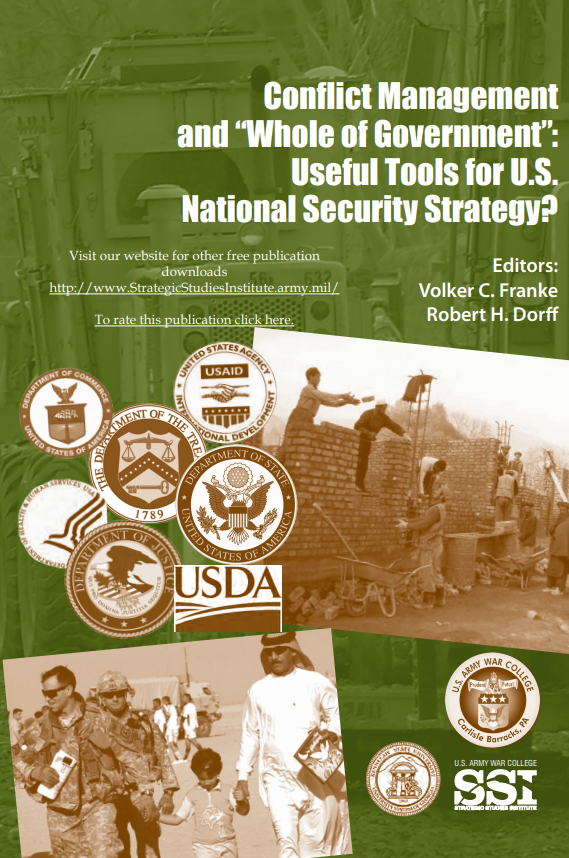 Authors: Dr Robert H Dorff, Dr Volker C Franke
Authors: Dr Robert H Dorff, Dr Volker C Franke
Today, America faces security challenges that are exceedingly dynamic and complex, in part because of the ever changing mix and number of actors involved and the pace with which the strategic and operational environments change. To meet these new challenges more effectively, the Obama administration advocated strengthening civilian instruments of national power and enhancing America’s whole of government (WoG) capabilities. Although the need for comprehensive integration and coordination of civilian and military, governmental and nongovernmental, and national and international capabilities to improve efficiency and effectiveness of post-conflict stabilization and peacebuilding efforts is widely recognized, Washington has been criticized for its attempts at creating WoG responses to international crises and conflicts that result in the overcommitment of resources, lack of sufficient funding and personnel, competition between agencies, ambiguous mission objectives, and the undermining of the military’s primary purpose of defending the national interest. Presenting the results of an international symposium held at Kennesaw State University in February 2011, this volume traces the genesis of WoG, critically examines current WoG practices, and draws lessons from the operational contexts of Iraq and Afghanistan. The first part of the book describes the overall global security context within which peacebuilding and stability operations are currently conducted, examines the merits of WoG approaches, and discusses their efficacy for responding to a range of emerging threats. The second part addresses some of the practical challenges of implementing WoG approaches for international conflict management and specifically for U.S. intervention in fragile states. The third and final part examines WoG efforts in the field and draws lessons learned from operational experiences in Afghanistan and Iraq that may be useful in future interventions.